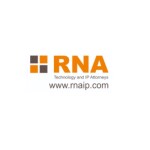COVID-19 continues to be the biggest newsmaker attracting businesses to launch products that would potentially help to prevent and cure the infection.
As the virus has spread, a number of advertisements with misleading claims around COVID-19 have emerged, such as those referring to cures and preventions stemming from an ‘anti-corona’ mattress or through the application of tulsi (Indian basil) drops to apparel.
Tackling misinformation
Press reports suggest that the Advertising Standards Council of India (ASCI) has reviewed more than 500 advertisements with COVID-related claims since March 2020.
One such complaint was filed by the People for the Ethical Treatment of Animals (PETA) against an alleged misleading advertisement issued by Breeders Association and Vencobb – part of All India Poultry Development and Services Private Limited. In the advertisement, the association claimed that eating chicken would boost immunity against coronavirus. It was subsequently requested to be brought down by the ASCI. Similarly, a bread brand’s claim on its packaging of immunity-boosting qualities led to the withdrawal of the product.
To curb these practices, the ASCI issued a press release listing out guidelines to promoters for the advertisement of various medicinal products and services.
The objective of these guidelines are to:
Ensure better compliance of the ASCI code on distorted advertisements;
Sensitise advertisers to be more mindful in creating advertisements and making claims related to COVID-19; and
Safeguard consumers to ensure the highest standards of advertising.
The advice states that:
1. During the COVID-19 pandemic, advertisements should avoid claiming the destruction or removal of any virus other than coronavirus, in order to avoid violating provisions of the ASCI code.
In the case that advertisers opt to claim the removal of any other virus in their advertisement, they should include a disclaimer, for example “claim not applicable to coronavirus (COVID-19)”, or a similar message with the disclaimer size and position in accordance with the Disclaimer Guidelines of the ASCI.
2. Advertisers of ayurvedic, unani, siddha and homeopathy products and services have been advised to abide by the order of the Ministry of Ayurveda, Yoga & Naturopathy, Unani, Siddha and Homoeopath (AYUSH), as dated April 1 2020 on coronavirus (COVID-19) advertisements.
The said order directs all concerned AYUSH regulatory authorities of the states/union territories to stop and prevent publicity and advertisement of AYUSH-related claims for COVID-19 treatment in print, television and electronic media. It also directs authorities to take necessary action against the persons/agencies involved in contravening the relevant legal provisions of the Disaster Management Act 2005, which labels the making of false claims as a punishable offence.
3. Advertisers’ claims of reducing the chances of getting infected with COVID-19, or gaining immunity against it, should be supported, recognised or approved by health authorities such as the World Health Organization (WHO), the Indian Council of Medical Research (ICMR), the Ministry of Health and Family Welfare (MoHFW), Drugs Controller General of India (DCGI), the US Centers for Disease Control and Prevention (CDC), AYUSH, or other health organisations of a similar stature. Otherwise, it should be backed up by well recognised medical literature, or by regulatory-approved clinical research conducted by a recognised medical institute or laboratory.
4. The products which are not internally consumed or applied to bodies, i.e. those which do not require a license under the Drug and Cosmetics Act, should be particularly cautious while making claims regarding the prevention of, immunity against, or treatment for COVID-19, unless they have verified supporting data.
Action against false statements
The press release further declares that in April 2020, AYUSH sought the ASCI’s help to alert it about misleading advertisements. Since then, the ASCI is stated to have processed 250 advertisements, and reported 233 from the healthcare sector to AYUSH. Of these, 162 were successfully resolved, as the advertisers either withdrew the advertisements or modified them. The remaining 71 were taken up by AYUSH for appropriate action.
A surge in the number of complaints in relation to ayurvedic medicines and treatment claims for COVID-19 has also been on the account of AYUSH’s attempts to integrate ayurveda and yoga interventions into India’s national clinical management protocol for COVID-19.
The press release indicated that as a part of the ASCI’s suo motu monitoring of the digital space, including social media platforms and advertiser websites, it has screened more than 500 advertisements that had COVID-related misleading claims. In a few cases, the ASCI also exercised the ‘suspension pending investigation’ option. This mechanism is used in exceptional circumstances, when it appears that an advertisement is in serious breach of the ASCI code and that its continued transmission on any medium could cause public harm or injury, or if its continuation is against the public interest.
In such cases, the ASCI would, pending investigation, direct the advertiser, agency, media buying agency, and the media concerned to suspend the advertisement. The advertisers are then given two business days to withdraw it themselves and the matter is subsequently examined within a month.
Creating legitimacy
The COVID-19 pandemic has greatly impacted the dynamics of global healthcare systems, which in turn has resulted in the development of new drugs, medicinal formulations, sanitary products and vaccines by several market players to cure or prevent infection, and boost immunity.
In a bid to increase sales and attract consumer attention, some brands have made misleading claims that may over promise results without substantiation. Thus, the ASCI guidelines are a timely proactive step to regulate such claims and remind brands of their obligations.
Ranjan Narula
Managing partner
Daleep Kumar
Associate partner













